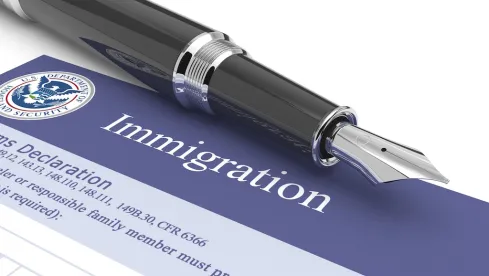Some registrants and their attorneys are complaining that some H-1B registrations submitted under the new, electronic process were denied as duplicates were not duplicates at all.
When the Department of Homeland Security (DHS) introduced H-1B Cap electronic registration, there were concerns that some employers might abuse the system. DHS decided to impose a small registration fee and said it would be taking other steps “to prevent speculative or frivolous registrations.” Their focus was on preventing duplicate registrations.
The issue of duplicate H-1B Cap filings has been around for more than a decade. In 2008, to ensure the fair distribution of H-1B visas, DHS introduced a rule prohibiting employers from filing multiple H-1B Cap petitions for the same employee. That rule included a prohibition on related employers, such as parent companies or subsidiaries, from filing petitions for the same employee, unless the employer could show a business need. By March 2018, U.S. Citizenship and Immigration Services (USCIS) had adopted new policy guidance explaining that the “related entities” prohibition extended to petitioners that file cap-subject H-1B petitions for the same beneficiary for substantially the same job, regardless of whether the companies were related through corporate ownership and control or not. In other words, contractors and staffing agencies, along with their clients, could not “stuff the ballot box.” Absent a legitimate business need, such duplicative petitions would be denied or, if previously approved, revoked.
With the start of electronic registration, DHS believed it could stop duplicate registrations. If the agency discovered duplicate registrations during the registration process, all registrations filed by the same entity or related entities for the same employee would be denied.
When the results of this year’s new electronic registration process started coming in, registrants and their attorneys complained that some registrations that were denied as duplicates were not duplicates at all. Indeed, by April 9, 2020, the American Immigration Lawyers Association (AILA) received reports from 61 attorneys complaining that about at least 170 registrations that were wrongly denied as duplicates.
The registrants and attorneys involved believed the denials were due to technical glitches in the system, possibly around making changes to registrations during the submission process, and that duplicate registrations were not evident on their client’s or their own registration pages.
USCIS stated that approximately 900 out of 275,000 registrations were rejected as duplicates. Advocates have noted that given the severe penalty – denial and even possible debarment – it is unlikely that registrants or lawyers submitted 900 duplicate registrations on purpose.
USCIS has refused to recognize any technical problems with the system. The agency has provided a blanket response, suggesting that registrants and their attorneys both submitted cases, rather than specifically addressing individual inquiries.




 />i
/>i

